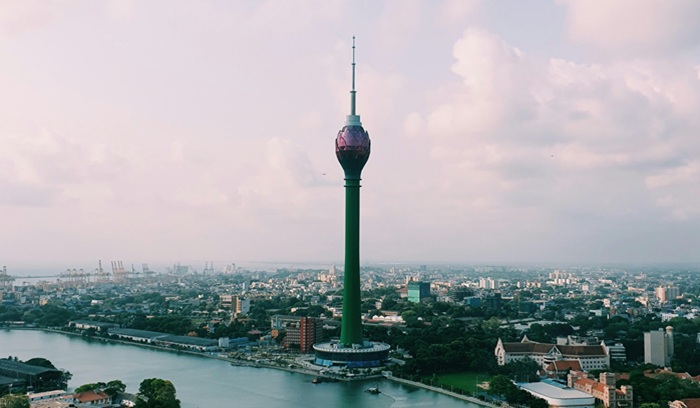In a landmark ruling, the Supreme Court of Sri Lanka has ordered the owners, operators, and local agents of the MV X-Press Pearl to pay $1 billion in compensation. This decision follows the 2021 sinking of the container ship, one of the worst marine disasters in the Indian Ocean, know as the X-Press Pearl disaster.
The ruling, delivered in July 2025, is seen as a major victory for environmental justice. It enforces the “polluter pays” principle, holding shipping companies responsible for the damage they cause.
What Happened in the X-Press Pearl Disaster?
The Singapore-flagged MV X-Press Pearl was carrying chemicals, plastics, and fuel when it caught fire off the coast of Colombo on May 20, 2021. The fire burned for nearly two weeks before the ship sank, spilling a toxic mix of oil, chemicals, and billions of tiny plastic pellets known as nurdles.
The spill blackened beaches, killed marine life, and devastated local fishing communities. The Sri Lankan government banned fishing across a wide coastal zone, leaving thousands without income. Conservationists described the event as the country’s “worst maritime environmental disaster.”
The Supreme Court Ruling
On July 23, 2025, the Supreme Court ordered the ship’s owners, its operators, and local agents to pay $1 billion in compensation. The ruling requires the companies to make an initial payment by September 23, 2025, with the rest due over time.
The court also directed the government to establish an independent compensation commission, which will oversee distribution of funds to affected fishermen, coastal residents, and environmental recovery programs.
By ruling in favor of the state and the public, the court reinforced the idea that global shipping companies cannot escape accountability for large-scale disasters.
Why the Decision Matters
The X-Press Pearl disaster caused long-lasting harm. Scientists found nurdles from the spill as far as Indonesia months after the sinking, showing how plastic pollution spreads across oceans. The release of chemicals also damaged coral reefs and fisheries, threatening biodiversity in the Indian Ocean region.
For Sri Lankans, the greatest impact was economic. Thousands of fishers lost their livelihoods for months, and the seafood industry faced reputational damage in export markets. The compensation fund is expected to help rebuild both livelihoods and ecosystems.
The ruling sends a clear message to the global shipping industry: environmental harm carries heavy costs.
Global Precedent for Environmental Justice
This ruling has implications far beyond Sri Lanka. Many developing nations struggle to hold multinational corporations accountable for environmental destruction. Lawsuits are costly, and companies often hide behind legal loopholes.
By securing a $1 billion judgment, Sri Lanka has shown that courts in the Global South can stand up to powerful polluters. Legal experts suggest this case could inspire similar actions in countries facing oil spills and chemical leaks.
Environmental groups, including Friends of the Earth International, have praised the X-Press Pearl disaster decision as a model for enforcing the “polluter pays” principle worldwide.
The Human Side of the Disaster
The X-Press Pearl disaster was also a human tragedy. Families who relied on fishing suddenly had no way to earn a living. Beachfront businesses collapsed as coastlines were covered with plastic nurdles. Residents worried about health risks from toxic chemicals entering the food chain through contaminated seafood.
The compensation fund offers a measure of hope. Fishermen’s unions and community groups are urging authorities to ensure fair distribution of payments. Many also want investments in long-term coastal restoration, including mangrove planting and reef rehabilitation.
A Turning Point for Sri Lanka
For Sri Lanka, this ruling is more than a financial victory—it is symbolic. The country has faced debt crises, political instability, and climate-related challenges. Winning a billion-dollar case against international shipping companies demonstrates the strength of its legal system and the resolve of its people.
It also highlights the growing importance of environmental protection in South Asia. As shipping traffic increases in the Indian Ocean, so does the risk of accidents. Stronger regulation and enforcement are now seen as essential for protecting vulnerable coastal communities.
Looking Ahead
The X-Press Pearl disaster ruling will not erase the damage already done. Nurdles from the ship may remain in the ocean for centuries. But the $1 billion compensation will help Sri Lanka rebuild, support affected families, and restore its coastline.
More importantly, it sets a global precedent. If a small island nation can hold powerful corporations accountable, others can too. The case proves that environmental justice is not just an aspiration but a standard that courts can enforce.
Conclusion
The Supreme Court’s $1 billion ruling in the X-Press Pearl case is one of the most significant environmental decisions in recent history. It is a victory for Sri Lanka’s people, its ecosystems, and for the principle that justice can reach across borders.
As Sri Lanka begins the long recovery process, the case stands as a reminder: protecting our oceans is not optional. It is essential for the survival of communities, marine life, and the planet itself.
For more on this story, go to Mongabay.

